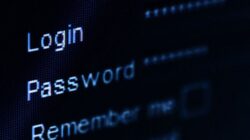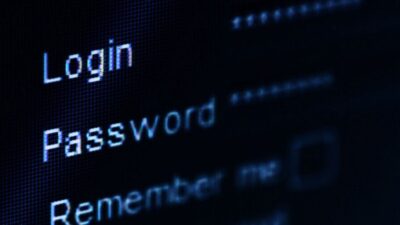Ultimate data encryption serves as a cornerstone of digital security in our increasingly interconnected world. By transforming information into a coded format, this process ensures that only authorized individuals can access it, thus protecting sensitive data from malicious actors. With the growth of online transactions and the exponential rise in data breaches, understanding the mechanisms and importance of data encryption is more critical than ever.
This foundational technology not only secures personal information but also bolsters organizational confidentiality, making it an essential practice across various sectors. As we delve deeper into the nuances of ultimate data encryption, we will explore its types, processes, challenges, and the tools that empower professionals to safeguard their digital communications effectively.
In the ever-evolving landscape of digital communication, the importance of effective writing cannot be overstated. Whether for personal expression or professional correspondence, the ability to articulate thoughts clearly and compellingly is essential. This article delves into the nuances of writing, exploring strategies, techniques, and insights that can elevate one’s writing skills to new heights.### Understanding the Purpose of WritingAt its core, writing serves several fundamental purposes, including to inform, persuade, entertain, and express.
Each of these purposes requires a different approach and understanding of the audience. For instance, informative writing aims to educate the reader on a specific topic, while persuasive writing seeks to convince the reader to adopt a particular viewpoint or take action. Identifying the primary purpose behind your writing is crucial, as it shapes the content, tone, and structure.### Knowing Your AudienceUnderstanding the audience is paramount in writing effectively.
Different readers have varied expectations, interests, and levels of knowledge about a topic. Tailoring your writing to resonate with your audience involves considering their demographics, preferences, and potential questions. For example, writing for a professional audience may necessitate a more formal tone and the use of jargon, whereas writing for a general audience might require simpler language and relatable examples.### Crafting a Clear StructureA well-structured piece of writing enhances readability and comprehension.

Typically, effective writing includes an introduction, body, and conclusion. The introduction should capture the reader’s attention and provide a brief overview of the main points. The body is where the core content resides, and it should be organized logically, using paragraphs to separate distinct ideas. Finally, the conclusion should succinctly summarize the key takeaways and, if applicable, prompt the reader to consider the implications or next steps.### The Power of Clarity and ConcisenessClarity is the cornerstone of effective writing.

Ambiguous language can confuse readers and undermine the intended message. To achieve clarity, writers should use precise language, avoid unnecessary jargon, and define any complex terms that may not be familiar to the audience. Moreover, conciseness is equally important; writers should strive to express their thoughts as succinctly as possible without sacrificing meaning. This can often be accomplished by removing redundant phrases and focusing on the key points.### The Role of Tone and StyleTone refers to the writer’s attitude toward the subject and the audience and can significantly influence how the message is received.
A formal tone is appropriate for academic or business writing, while a conversational tone may be more suitable for blog posts and personal narratives. Writers should also consider their unique voice and style, which can help establish a connection with readers. Striking the right balance between professionalism and personal flair can enhance engagement and relatability.### Engaging the ReaderTo capture and maintain the reader’s interest, effective writing often employs various techniques.
These may include storytelling, rhetorical questions, and vivid imagery. Storytelling, for instance, can make complex topics more relatable by weaving in personal anecdotes or case studies. Rhetorical questions invite readers to ponder and engage more deeply with the content, while descriptive language can create vivid mental images that enhance understanding.### Revising and EditingThe writing process does not end with the first draft.
Revision and editing are critical steps that allow writers to refine their work. During the revision phase, writers should review the content for clarity, coherence, and flow, making necessary adjustments to improve the overall quality. Editing focuses on correcting grammatical errors, punctuation mistakes, and typos. It is often beneficial to take a break after completing a draft to return with fresh eyes, allowing for a more objective assessment of the work.### Seeking FeedbackReceiving constructive feedback can be invaluable for improving writing skills.
Sharing drafts with peers or mentors can provide new perspectives and insights that the writer might not have considered. It is essential to approach feedback with an open mind, recognizing that differing opinions can contribute to the development of stronger writing. Additionally, writers should distinguish between subjective preferences and objective criticisms to make informed revisions.### The Importance of Research and CredibilityIn an age of information abundance, supporting one’s arguments with credible sources is crucial.
Well-researched writing enhances the author’s credibility and provides readers with reliable information. Writers should strive to include statistics, expert opinions, and relevant studies when applicable. It is also essential to cite sources correctly to avoid plagiarism and uphold academic integrity.### Embracing Continuous LearningWriting is a skill that can always be refined, and writers should embrace a mindset of continuous learning.
This can involve taking writing courses, attending workshops, or reading books about writing techniques. Engaging with other writers through forums or writing groups can also foster growth and development. The landscape of language and communication continues to evolve, making it essential for writers to stay informed about new trends and styles.### ConclusionIn conclusion, effective writing is an invaluable skill that transcends disciplines and professions.
By understanding the purpose of writing, knowing the audience, and employing clear structure, clarity, and engaging techniques, writers can significantly enhance their communication prowess. The journey of becoming a better writer is ongoing, requiring practice, feedback, and a commitment to learning. With dedication and perseverance, anyone can master the art of writing and convey their ideas with confidence and clarity.As we navigate through the complexities of communication in our modern world, let us remember the power of words and the impact they can have on our lives.
By honing our writing skills, we can better articulate our thoughts and connect meaningfully with others, paving the way for more fruitful interactions and collaborations.

Quick FAQs
What is data encryption?
Data encryption is the process of converting information into a coded format that can only be read by someone who has the appropriate key or password to decrypt it.
Why is data encryption important?
It is vital for protecting sensitive information from unauthorized access, ensuring confidentiality, and maintaining trust in digital communications.
What are the different types of encryption?
The main types include symmetric encryption, where the same key is used for both encryption and decryption, and asymmetric encryption, which uses a pair of keys.
Can encrypted data be hacked?
While encryption enhances security, no system is entirely foolproof; hackers can potentially exploit vulnerabilities, but encrypted data is significantly harder to access.
How does encryption affect performance?

Encryption can introduce latency due to the processing overhead, but advancements in technology are continually mitigating these effects.











